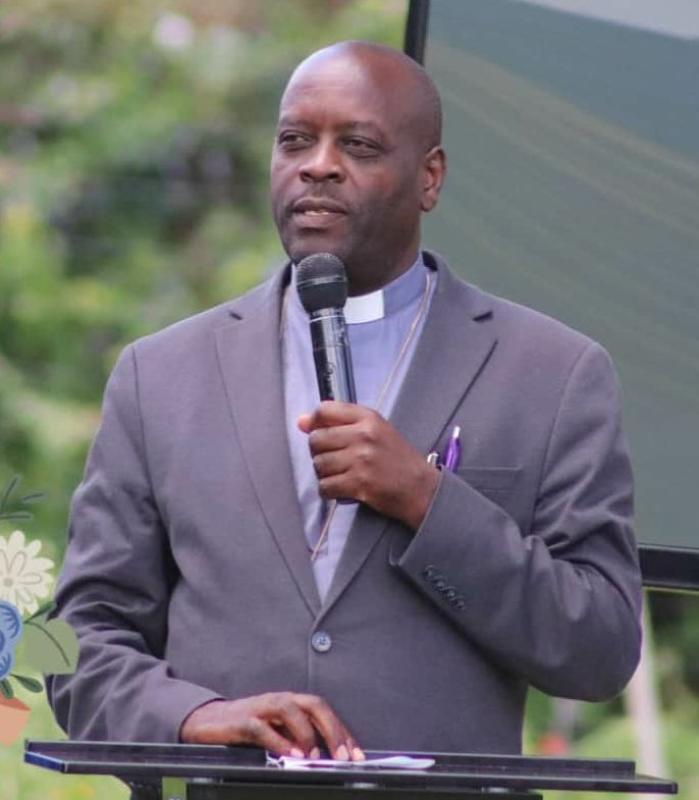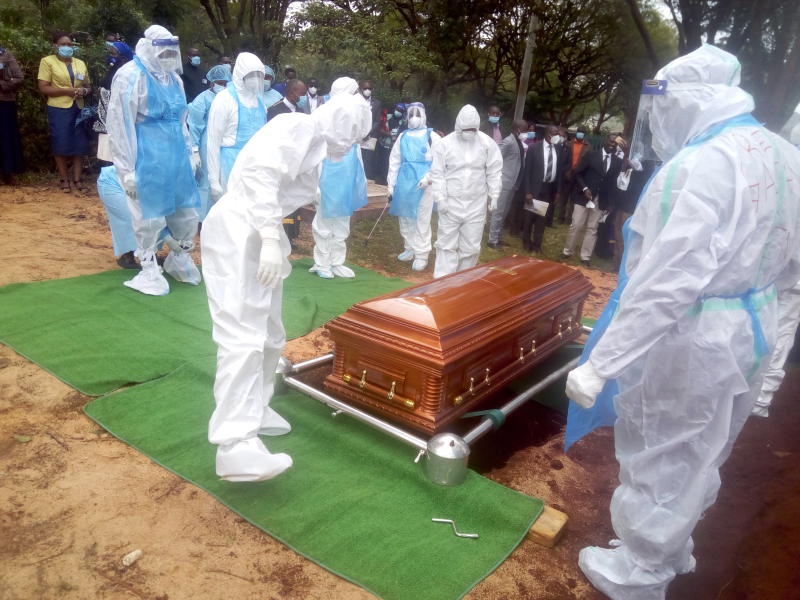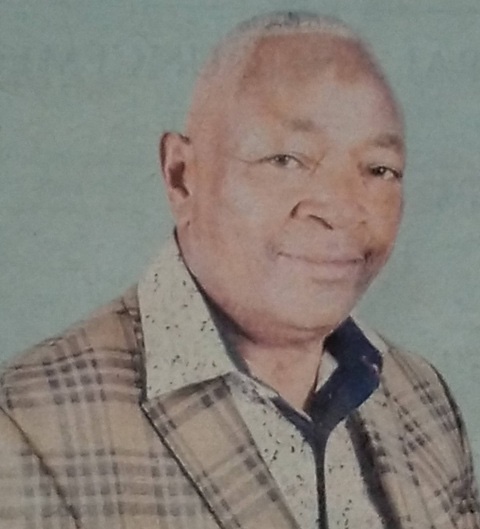Rev Peter Kania withdrew Sh3 million after his death and four months later his deactivated cell phone cleaned three bank accounts dryDeath-preneurs: The late Rev Peter Kariuki Kania who withdrew money even before he was taken to the morgue. Criminals specializing in ‘tombstone theft’ seem to have insiders in major hospitals where a sickly worthy- with one foot in the grave- is fighting for dear life at the ICU. How else were withdrawals from Rev Kania’s accounts hours after his death?

By Pascal Owade
Contributing editor/crime
It was the bizarre case of a pastor whose accounts lost Sh3 million before he was buried and his cell phone number used to steal Sh2.8 million from the accounts of a dead businessman.
The late PCEA Rev Peter Kariuki Kania died in July last year at the Nairobi Hospital, the effects of ‘Miss Rona’. Shortly, his accounts were cleaned of Sh3 million before and during funeral arrangements. The crooks had also applied for a Sh500, 000 mobile loan by the time his wife, Nelius Wanjiru Kania, discovered the withdrawals two weeks after his burial at the Church of the Torch, Thogoto in Kikuyu.
Four months later in November 2020, businessman Amos Ngata Muiruri succumbed to a botched surgery. He was buried in Nyandarua County, and a week later, Rev Kania’s cell phone was used to withdraw Sh2.8 million from his three bank accounts via mobile applications. By being the Secretary General of PCEA-and President Uhuru Kenyatta sent his condolences- Rev Kania was a perfect victim.
The Directorate of Criminal Investigations (DCI) have already arrested suspects; a former banker and a clerk at the Registrar of Persons. These crooks rope in IT experts in a criminal enterprise of identity theft to rob the dead.
These new crooks are exploiting the Kenyan culture of switching off a loved one’s phone after death

These new crooks are exploiting the Kenyan culture of switching off a loved one’s phone after ‘biting cotton.’ Bad idea if the dear departed was filthy rich-which crooks can judge from size of the obituary, titles, company where one worked, the five star hospital and morgue where the stiff is and the victim is even a better candidate if children and siblings are coming from broad: funeral will be delayed awaiting their arrival.
Kenyans parade all these information in the dailies alongside full names of the deceased, date of birth and venues for burial arrangements in the obituaries. This info-which some crooks get from funeral homes while posing as relatives- is godsend.
Indeed, all the fraudsters need is the deceased’s cell phone number-some of which are listed on online CVs, workplace and personal websites. For a prominent, reclusive Kenyan, criminals access their numbers by hacking into phones of friends, family or relatives in funeral meeting venues with open Wi-Fi.
Armed with the cell phone number, these local fraudsters then engage in ‘identity breeding’

Armed with the cell phone number, these fraudsters then engage in ‘identity breeding’ basically getting the PIN-which they get using insiders at the Registrar of Persons for access to a victim’s ID card number, addresses and date of birth-which they use to request for a new line pretending the old one got lost. If the victim used date of birth or last ID card digits-which most Kenyans as passwords-then the crooks are game!
This crime trend points to the dangers of living digital lives dominated by passwords: cell phone, mobile money and bank account, CDS and Unit Trust accounts, lap tops, iPads, tablets and social media handles-are now becoming ‘active crime scenes’ from third parties accessing passwords and leaving a baffled bereaving family at the losing end.
Kania’s wife had switched off his phone to avoid calls from those who did not know he was dead. She switched the phone on two weeks after burial. She had the password-but alas! it had been changed. Supported with a death certificate and affidavit, she made inquiries from the mobile subscriber which revealed the number was actively being used to make mobile withdrawals.
One customer requested for a new ATM card one Friday. Then bank teller saw his obituary the following week

This calls for increased use of finger print and facial recognition- to minimize ‘tombstone theft’-who’s other culprits are bank tellers.
One customer requested for a new ATM card one Friday. The card comes with a PIN-which the customer is requested to change. Then the teller, who was keeping the ATM card awaiting collection, saw his obituary in the dailies the following week!
In yet another case, a teller opened an account for a British national containing Sh70 million. His obituary appeared online before he had collected his ATM card. Only the teller and the deceased were privy to the goings on. The teller was apprehended for among others; not withdrawing from his account for a year, driving a Beamer without taking a loan, moving houses to Loresho from Eastlands, having his lunch at The Norfolk and dressing in more expensive suits than the CEO-all without salary increment or winning the lottery!
There's no story that cannot be told. We cover the stories that others don't want to be told, we bring you all the news you need. If you have tips, exposes or any story you need to be told bluntly and all queries write to us [email protected] also find us on Telegram
